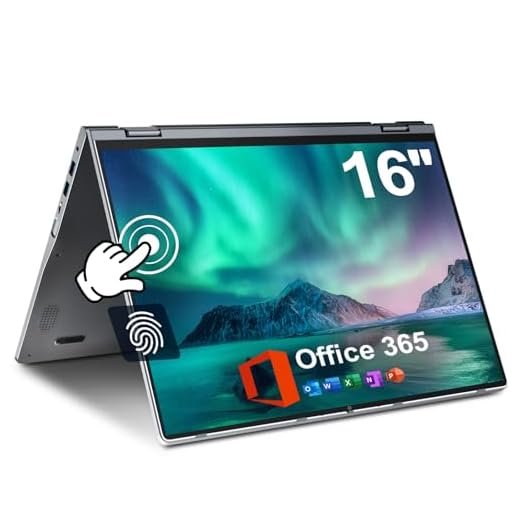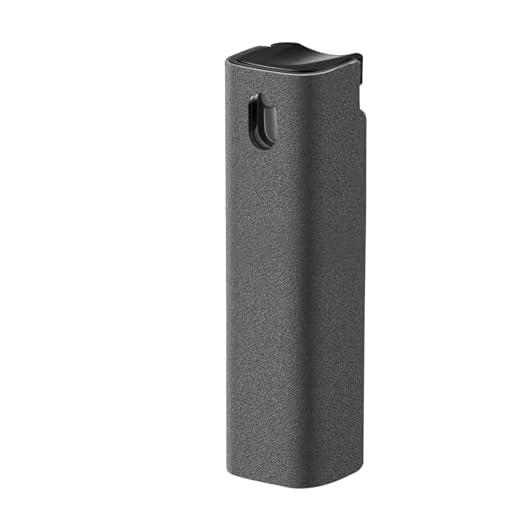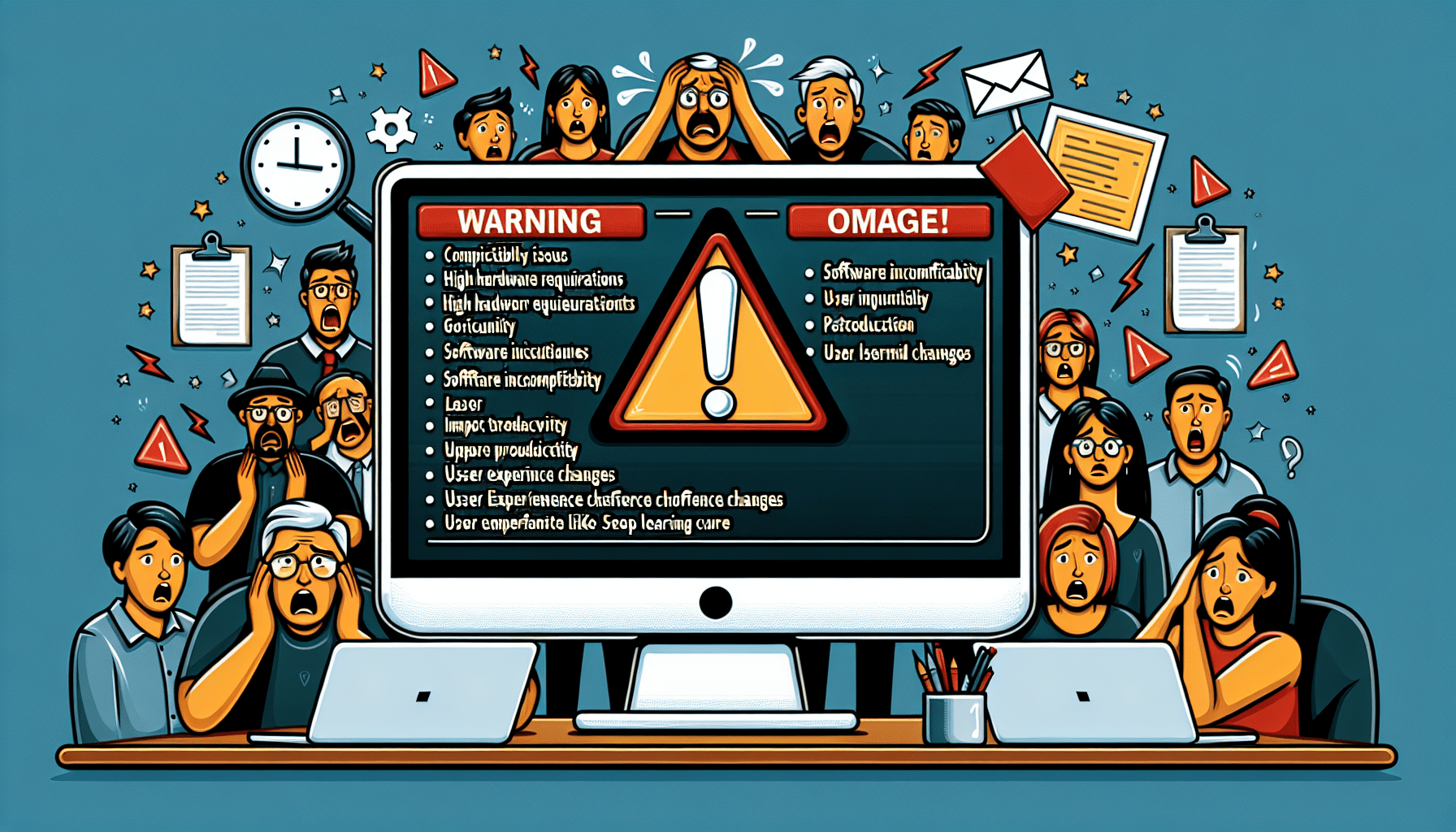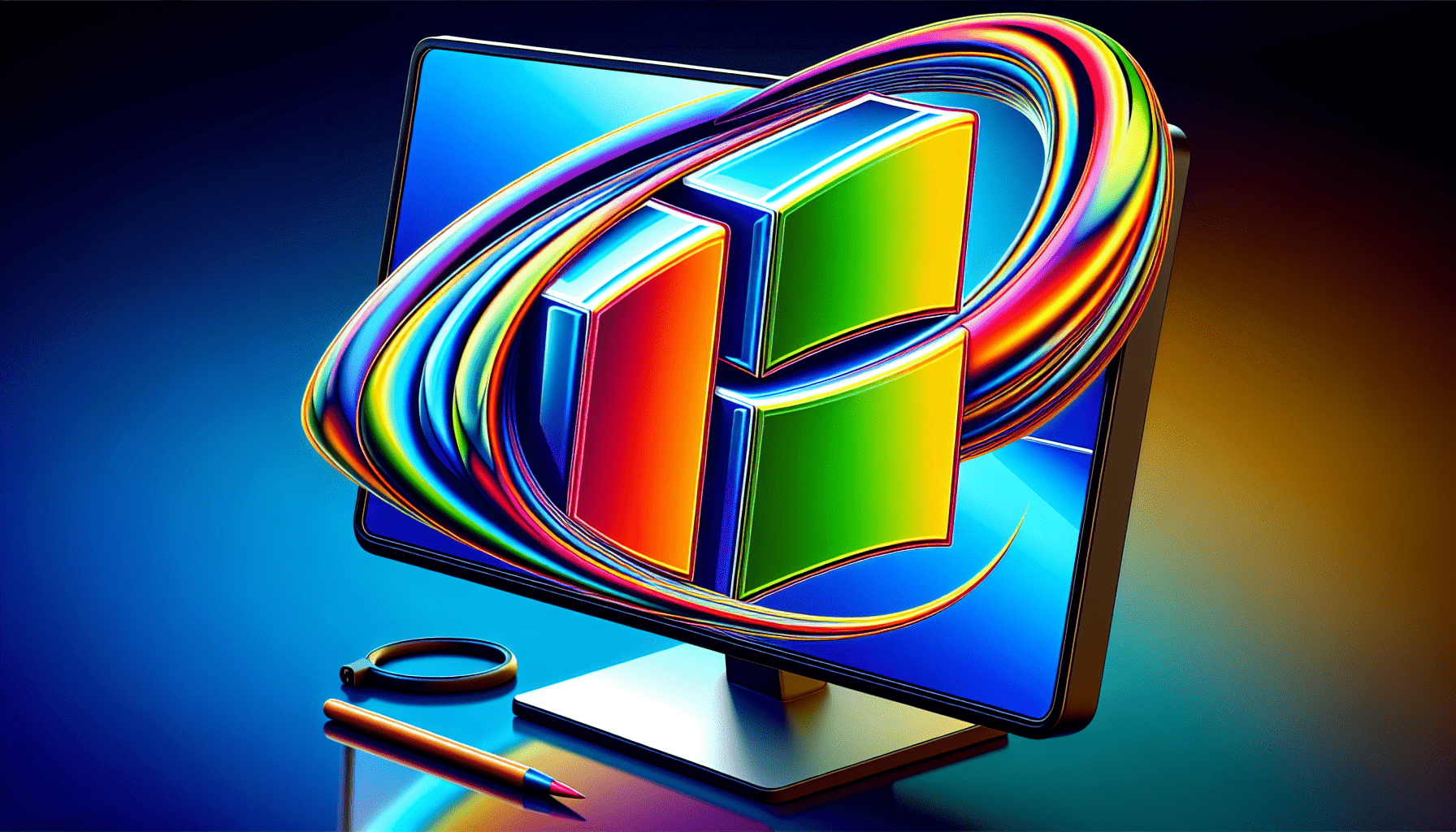







touchscreen laptops have become increasingly popular in recent years, offering a convenient and intuitive way to interact with our devices. But as we embrace this technological advancement, we can’t help but wonder, “Are touchscreen laptops long lasting?” With their sleek design and interactive capabilities, it’s essential to understand whether these devices can withstand the test of time. In this article, we will explore the durability and longevity of touchscreen laptops, providing insights into their potential lifespan and tips for prolonging their usage.
Build Quality
Quality of materials
When it comes to the build quality of touchscreen laptops, it is crucial to assess the quality of materials used. Touchscreen laptops are typically made from a combination of lightweight metals, such as aluminum, and durable plastics. These materials are chosen to strike a balance between strength and weight, ensuring that the device is sturdy and portable. High-quality materials add to the overall longevity of the laptop, as they are less prone to cracks, dents, and warping.
Durability of hinges
Another aspect of build quality that can impact the longevity of a touchscreen laptop is the durability of its hinges. The hinges play a crucial role in allowing the screen to be opened and closed multiple times without wearing out. A well-designed and robust hinge mechanism should withstand regular usage for an extended period. It is worth considering laptops with reinforced hinges or those that have undergone rigorous testing to ensure durability.
Resistance to wear and tear
Touchscreen laptops are more susceptible to wear and tear due to their increased use of touch input. The screen, in particular, may be prone to smudges, scratches, and fingerprints. However, manufacturers have made significant improvements in the durability and resistance of touchscreen displays. Many laptops now come with oleophobic coatings that reduce fingerprint smudges and make cleaning easier. Additionally, some models utilize scratch-resistant glass or extra layers of protection to minimize damage from daily use.
Hardware Specifications
Processor performance
The processor is the brain of any laptop, and it plays a crucial role in determining the overall performance and longevity of a touchscreen device. A powerful and efficient processor ensures smooth and seamless operation, even when multitasking or running resource-intensive applications. Touchscreen laptops with higher-end processors tend to offer better longevity since they can handle technological advancements and demanding software for a longer time.
RAM and storage capacity
Adequate RAM (Random Access Memory) and storage capacity are vital for the longevity of a touchscreen laptop. Sufficient RAM allows for smooth multitasking and efficient handling of large files and applications. Similarly, ample storage capacity ensures that you can store all your files and software without running out of space quickly. When considering a touchscreen laptop for longevity, it is advisable to choose models with higher RAM and storage capacities to accommodate future software updates and expansions.
Graphics capabilities
The graphics capabilities of a touchscreen laptop affect its ability to run graphics-intensive applications, games, and multimedia content. High-quality graphics processing units (GPUs) contribute to a better user experience and ensure that the laptop can handle future graphical demands as technology advances. Touchscreen laptops with dedicated graphics cards are typically more capable of providing a long-lasting and superior visual experience.

Battery Life
Effect of touchscreen on battery life
One aspect often associated with touchscreen laptops is their impact on battery life. The touchscreen feature requires additional power to operate, which can potentially lead to reduced battery life compared to non-touchscreen laptops. However, advancements in touchscreen technology and power optimization features have significantly minimized this difference. It is important to note that the actual impact on battery life can vary depending on several factors, including the brightness setting, usage intensity, and software optimization.
Battery capacity
Battery capacity is a crucial factor to consider when evaluating the longevity of a touchscreen laptop. Higher-capacity batteries tend to provide longer battery life, allowing you to use the laptop for extended periods without requiring a recharge. It is advisable to opt for laptops with larger battery capacities to ensure that they can withstand extended usage and provide reliable performance over time.
Power optimization features
To mitigate the impact of the touchscreen on battery life, many touchscreen laptops come equipped with power optimization features. These features intelligently manage power consumption to maximize battery life without sacrificing performance. Some laptops employ adaptive brightness controls, which adjust the screen brightness based on ambient lighting conditions, while others use advanced power management algorithms to optimize power usage. These power optimization features contribute to the overall longevity and usability of touchscreen laptops.
Touchscreen Technology
Type of touchscreen technology used
Various touchscreen technologies are used in laptops, including resistive, capacitive, and optical touchscreens. Each technology has its advantages and limitations, which can impact the longevity of the touchscreen functionality. Capacitive touchscreens, which utilize electrical conductivity, are the most common type found in modern laptops. They offer excellent accuracy and responsiveness and are highly durable. It is advisable to choose touchscreen laptops with capacitive touchscreens for better long-term performance and reliability.
Accuracy and responsiveness
The accuracy and responsiveness of the touchscreen are crucial factors in determining the overall user experience and longevity of a touchscreen laptop. A high-quality touchscreen should accurately register touch inputs and respond promptly without any lag or delay. Touchscreens with improved accuracy and responsiveness tend to have better longevity, as they provide a more seamless and enjoyable user experience over the device’s lifespan.
Impact on overall device longevity
While touchscreens add versatility and convenience to laptops, their constant use can potentially affect the overall device longevity. The touchscreen component itself is durable, but excessive pressure or rough handling may cause damage. However, with proper care and usage, touchscreens can offer the same longevity as non-touchscreen laptops. Minimizing the use of excessive force or sharp objects on the screen and employing protective measures can significantly enhance the touchscreen’s lifespan.

Software Support
Operating system updates
Regular software updates play a crucial role in enhancing the longevity and security of any laptop, including touchscreen models. Manufacturers often release updates to fix bugs, improve performance, and introduce new features. Long-term software support ensures that your touchscreen laptop remains compatible with the latest software versions, enhances overall performance, and delivers an optimal user experience.
Driver updates for touch functionality
Touchscreen functionality is heavily reliant on drivers specifically designed to communicate between the hardware and operating system. It is important to consider the manufacturer’s track record in releasing driver updates for touch functionality. Frequent driver updates ensure that the touchscreen continues to perform optimally and remains compatible with the latest operating system updates. Manufacturers with a strong commitment to driver updates enhance the longevity and usability of touchscreen laptops.
Compatibility with future software versions
As technology advances, software requirements and compatibility change. To ensure the longevity of your touchscreen laptop, it is essential to choose a model that can adapt to future software updates. Look for laptops that have a track record of compatibility with future software versions, as this ensures that your device can continue running the latest applications and operating systems for an extended period. Compatibility with future software versions contributes to the long-term usability and value of touchscreen laptops.
Usability
Ergonomics of touchscreen usage
The ergonomics of touchscreen usage are essential for long-term usability and user comfort. Touchscreen laptops should offer a comfortable and intuitive experience, allowing you to navigate and interact with the device effortlessly. Factors such as screen positioning, touch sensitivity, and palm rejection technology can significantly enhance the ergonomics of touchscreen usage. Touchscreen laptops that prioritize user comfort and ergonomics are more likely to provide a satisfactory and long-lasting user experience.
Screen size and resolution
Screen size and resolution directly impact the usability and longevity of touchscreen laptops. A larger screen size provides more screen real estate for touch interactions, making it easier to navigate and manipulate content. Similarly, a higher screen resolution enhances the visual clarity and precision of touch inputs. When considering a touchscreen laptop for longevity, it is advisable to choose models with ample screen size and resolution that cater to your specific usage needs.
Touchscreen functionality in different usage scenarios
The versatility of touchscreen functionality can significantly enhance the usability and longevity of a laptop. Touchscreen laptops are particularly beneficial in scenarios that require direct manipulation, such as drawing, graphic design, and presentations. The ability to interact directly with the screen expedites certain tasks and increases efficiency. Consider the specific usage scenarios in which you plan to utilize the touchscreen functionality to ensure that it aligns with your long-term needs and preferences.
Maintenance and Care
Cleaning the touchscreen display
Proper maintenance and cleaning of the touchscreen display are crucial for ensuring its longevity and optimal performance. Regularly wiping the screen with a microfiber cloth or touchscreen-safe cleaning solution removes fingerprints, smudges, and dust. Avoid using abrasive materials or harsh chemicals that can damage the touchscreen or its coating. Following the manufacturer’s guidelines and using appropriate cleaning methods are essential for maintaining the pristine condition of the touchscreen display.
Protective measures against scratches and damage
To protect the touchscreen display from scratches and damage, it is advisable to use screen protectors or laptop cases. Screen protectors provide an additional layer of defense against everyday wear and tear without affecting touch sensitivity. Laptop cases offer overall protection against accidental drops, impacts, and spills, reducing the risk of damage to the touchscreen and other components. Employing these protective measures can significantly enhance the longevity of your touchscreen laptop.
Proper storage and handling
Proper storage and handling practices contribute to the long-term performance and durability of any laptop, including touchscreen models. When not in use, it is recommended to store the laptop in a cool and dry environment to avoid excessive heat, moisture, or dust accumulation. Additionally, handling the laptop with care, avoiding unnecessary force or pressure, and transporting it in padded bags or cases can minimize the risk of damage to the touchscreen and other components.
Customer Reviews
Feedback from long-term users
Customer reviews provide valuable insights into the longevity and satisfaction of touchscreen laptop users. Hearing from individuals who have used the device for an extended period allows you to gauge its performance, durability, and overall value over time. Look for reviews from long-term users to gain a comprehensive understanding of how touchscreen laptops hold up and whether they meet long-term expectations.
Common issues reported
Analyzing common issues reported by touchscreen laptop users helps identify potential durability concerns or areas for improvement. These issues can include touchscreen responsiveness, hinge durability, battery life, or software-related problems. By being aware of common drawbacks, you can make an informed decision when selecting a touchscreen laptop and take preventive measures to mitigate potential risks.
Overall satisfaction with touchscreen laptops
Evaluating the overall satisfaction of touchscreen laptop users can provide valuable insights into their long-term durability and functionality. Positive reviews that highlight extended usability, minimal issues, and satisfaction with the touchscreen functionality indicate that touchscreen laptops can indeed offer long-lasting value. Consider the general sentiment and satisfaction levels among users when assessing the potential longevity of touchscreen laptops.
Manufacturer’s Warranty
Length and coverage of warranty
The length and coverage of the manufacturer’s warranty are crucial factors to consider when assessing the longevity of a touchscreen laptop. A longer warranty period indicates the manufacturer’s confidence in their product’s quality and longevity. It provides assurance in the event of manufacturing defects or component failures that may impact the device’s long-term usability. Look for manufacturers that offer generous warranty coverage to enhance your peace of mind and mitigate potential risks.
Support for touchscreen-specific issues
Touchscreen-specific issues may arise during the laptop’s lifespan, and it is essential to have adequate support from the manufacturer. An exemplary manufacturer will have dedicated support channels for addressing touchscreen-related concerns promptly and effectively. Access to reliable technical support and resources ensures that any touchscreen issues can be resolved in a timely manner, extending the overall longevity and functionality of the laptop.
Repair or replacement options
In the unfortunate event that a touchscreen laptop encounters a significant issue, the availability of repair or replacement options becomes critical. Manufacturers that provide accessible and reliable repair services or replacement options help extend the longevity of the device. Considering the manufacturer’s repair and replacement policies when evaluating a touchscreen laptop can provide peace of mind and ensure that any potential issues can be addressed effectively.
Price and Value
Comparison of touchscreen and non-touchscreen laptop prices
When considering the longevity of a touchscreen laptop, it is important to evaluate its price in comparison to non-touchscreen models. Touchscreen laptops tend to be slightly more expensive due to the additional technology involved. It is crucial to assess whether the added cost is justified by the added value and longevity of the touchscreen functionality. Comparing prices and the value offered between touchscreen and non-touchscreen laptops helps make an informed decision based on your specific needs and budget.
Evaluation of the added value of touchscreen functionality
The added value of touchscreen functionality must be evaluated to determine the long-term cost-effectiveness of a touchscreen laptop. Touchscreen laptops offer the convenience of direct interaction and increased versatility in several applications. Assess whether the touchscreen adds significant value to your work or personal tasks and whether it enhances productivity and efficiency. Understanding the long-term benefits and advantages of touchscreen functionality helps justify the investment and ensures that it will continue to provide value over time.
Long-term cost-effectiveness
Long-term cost-effectiveness is a crucial consideration when evaluating the longevity of touchscreen laptops. While touchscreen models may have a higher initial cost than their non-touch counterparts, their added functionalities and extended usability may justify the investment. Touchscreen laptops that provide durability, reliable performance, and adaptability to future software updates offer better long-term cost-effectiveness. Assessing the overall value, longevity, and future-proofing capabilities of a touchscreen laptop helps ensure that it remains a cost-effective choice throughout its lifespan.
In conclusion, touchscreen laptops can indeed offer long-lasting performance and functionality with the right considerations. The build quality, including the choice of materials and durability of hinges, contributes to the overall longevity of the device. Hardware specifications, such as processor performance, RAM and storage capacity, and graphics capabilities, determine the laptop’s ability to handle future advancements and demanding applications.
Battery life, the effect of the touchscreen on battery performance, and power optimization features are all critical factors when assessing the longevity of a touchscreen laptop. The type of touchscreen technology, its accuracy and responsiveness, and its impact on the device’s overall longevity should also be considered.
Software support, including operating system updates and driver updates for touch functionality, ensures compatibility with future software versions and enhances the device’s long-term usability. Usability factors, such as the ergonomics of touchscreen usage, screen size and resolution, and touchscreen functionality in different usage scenarios, should be evaluated to ensure a satisfying user experience throughout the laptop’s lifespan.
Proper maintenance and care, customer reviews, and the manufacturer’s warranty are essential aspects to consider when determining the longevity of a touchscreen laptop. Additionally, evaluating the price and value of touchscreen functionality, as well as the long-term cost-effectiveness, helps make an informed decision based on your specific needs and budget.
Ultimately, by considering these factors and making a well-informed choice, you can enjoy the benefits of a touchscreen laptop for years to come.




